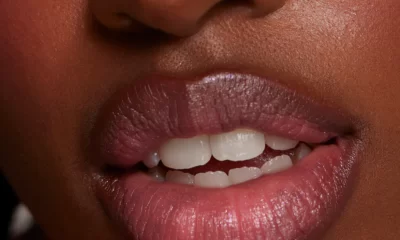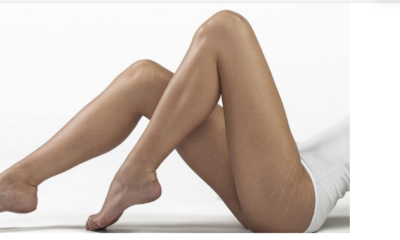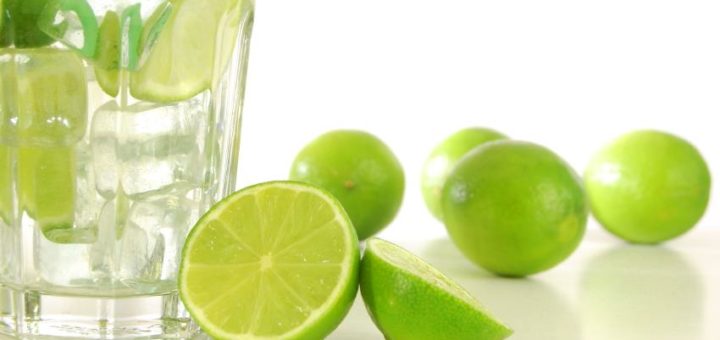BEAUTY
How To Use Lemon And Lime For Stretch Marks Removal
Published
11 months agoon

Stretch marks removal is very possible if you desire it. Stretch marks also known as striae, are a common skin concern that many people face. They often occur due to rapid weight gain, pregnancy, growth spurts, or hormonal changes.
While some people may love the stretch marks on their bodies as a natural part of life, they can be bothersome for some other individuals. Lemon and lime, two citrus powerhouses, contain properties that can help with stretch marks removal from your skin.

1. Lemon and Lime Juice:
Citrus fruits like lemon and lime are rich in alpha hydroxy acids (AHAs), which promote skin exfoliation and encourage the growth of new, healthy skin cells. The natural acidity in these fruits can help lighten and fade stretch marks over time.
- Lemon Juice: Squeeze fresh lemon juice and apply it directly to your stretch marks. Leave it on for about 10-15 minutes before rinsing off with warm water. Repeat this process daily for noticeable results.
- Lime Juice: Lime juice works similarly to lemon juice. Apply fresh lime juice to your stretch marks and let it sit for 10-15 minutes before rinsing. You can also mix it with a bit of honey or olive oil for added moisturizing benefits.

Lemon juice
2. Lemon and Lime Sugar Scrub:
Exfoliation is one of the keys to reducing the appearance of stretch marks. Combine the exfoliating power of sugar with the brightening properties of lemon or lime for an effective scrub.
The ingredients you can use for this are:
- 2 tablespoons of sugar (white or brown)
- 1 tablespoon of lemon or lime juice
- 1 tablespoon of olive oil or coconut oil
Instructions on how to achieve and use this scrub:
- Mix the ingredients to form a paste.
- Gently massage the scrub onto your stretch mark-affected areas for a few minutes, then rinse with warm water.
- Regular use can help exfoliate faster and improve skin texture.

Lime sugar scrub
3. Lemon and Lime Essential Oils:
Both lemon and lime essential oils have therapeutic properties that can benefit your skin.
They contain antioxidants and can be used in various ways such as:
- Diluted Massage Oil: Mix a few drops of lemon or lime essential oil with a carrier oil like coconut oil or almond oil. Massage this mixture onto your stretch marks in a circular motion. This not only helps with the stretch marks removal but also moisturizes the skin.
- Bath Soak: Add a few drops of lemon or lime essential oil to your bathwater. Soaking in this aromatic bath can improve overall skin tone and texture.

Lemon-lime essential oil
4. Lemon and Lime Peel Masks:
Citrus peels contain potent nutrients and oils that can help revitalize the skin.
You can create masks using lemon or lime peels such as:
- Dried Citrus Peel: Dry lemon or lime peels in the sun and then grind them into a fine powder. Mix the powder with yoghurt and honey to create a paste. Apply this mask to your stretch marks and leave it on for 15-20 minutes before rinsing off.
- Citrus Zest Scrub: Grate the zest of lemon or lime and mix it with a small amount of sugar and olive oil. Gently rub this mixture onto your stretch marks, then wash off with warm water.

Lemon and lime peel
5. Lemon and Lime Infused Water:
Hydration is highly needed if you desire to have a healthy skin. Drinking lemon or lime-infused water helps detoxify the body and promotes skin elasticity, which can minimize the development of new stretch marks.
So, in place of using lemon and or lime externally on the skin, you can choose to fight your stretch marks from the inside out.
Recipe for lemon and lime-infused water:
- Squeeze fresh lemon or lime juice into a glass of warm water and drink it daily.
- You can also add slices of lemon or lime to your water for a refreshing twist.
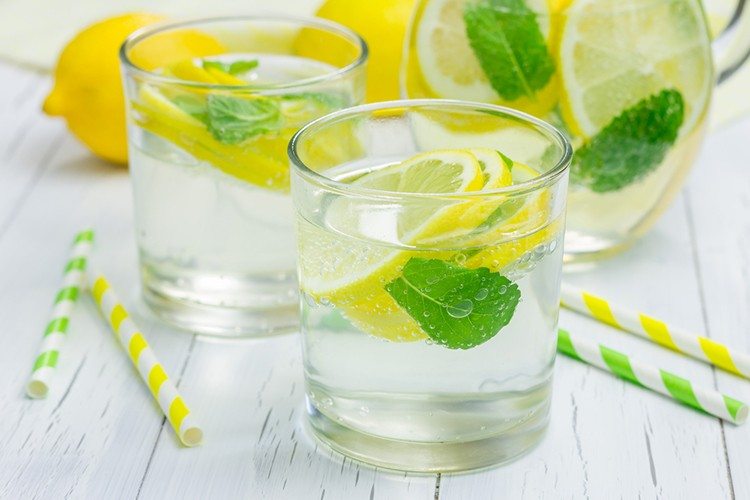
Lemon-infused water
Lemon and lime are very effective natural remedies for diminishing the appearance of stretch marks. However, it’s important to note that to get results, consistency is key.
Also, always perform a patch test before using citrus products on your skin, because they can be irritating for some individuals.
In addition to the use of lemon and lime, maintaining good eating habits and exercising regularly can also help you fight the appearance of stretch marks on your skin. This is also effective after pregnancy.
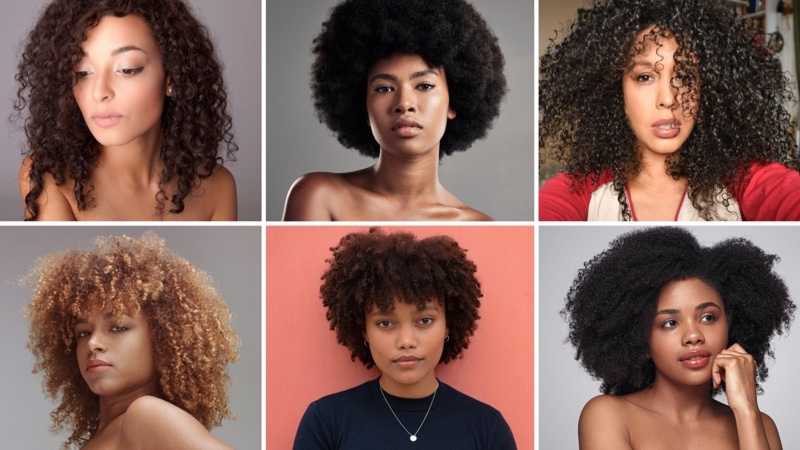
In Nigeria, hair is an important part of our culture and personal identity. Many Nigerians take great pride in their hair and put a lot of effort into maintaining it. Here are some hair care tips suitable for the various Nigerian hair types common in our country.
Hair Care Tips: Understanding Nigerian Hair Types
The first step to healthy hair is understanding your texture. Here’s a breakdown of the most common hair types found in Nigeria:
-
Type 4 hair (coily/kinky): This is the most prevalent hair type, characterized by tight coils and zig-zags. There are subcategories: 4A (tightly coiled), 4B (springy coils), and 4C (very dense, tightly coiled). This hair thrives on moisture and is prone to dryness and breakage if not cared for properly.
-
Type 3 hair (curly): Loose and voluminous curls with a distinct “S” pattern. Subcategories include 3A (large, loose curls), 3B (tight, springy curls), and 3C (tight corkscrew curls). While more manageable than Type 4 hair, Type 3 hair still requires a moisture-focused routine to maintain its bounce and definition.
-
Type 2 hair (wavy): Hair with a slight wave pattern that can be straight or wavy depending on styling and care. This hair type can be versatile but may require specific products and techniques to enhance the waves or achieve a straighter look.

Nigerian Hair Care Tips: Moisturizing is Key
Nigerian hair tends to be dry. This is because the natural oils from our scalp have a hard time moving down our curly hair strands. Keeping our hair moisturized is very important. Nature’s bounty plays a starring role in Nigerian hair care tips here.
Traditionally, readily available ingredients rich in emollients (softening agents) and humectants (moisture-attracting agents) have been used for generations to keep hair healthy. Here are some staples:
-
Shea butter: A hero ingredient, shea butter deeply moisturizes and nourishes the scalp, promoting hair growth and preventing dryness. Its thick consistency makes it ideal for sealing in moisture, especially for Type 4 hair.
-
Coconut oil: Another popular choice, coconut oil penetrates the hair shaft, adding shine and reducing frizz. Due to its lightweight properties, coconut oil is a good choice for all hair types but may be especially beneficial for those with finer hair textures (Types 2 and 3).
-
Palm oil: Rich in vitamin E, palm oil promotes scalp health and hair growth. Traditionally used in hair treatments, palm oil is often combined with other ingredients like shea butter for added benefits.
-
Black castor oil: Known for its hair-thickening properties, black castor oil strengthens hair and promotes healthy scalp circulation. While it can be used on all hair types, black castor oil’s thick consistency makes it particularly beneficial for Type 4 hair that may benefit from extra nourishment.
Protective Styling: Your Hair’s Best Friend
Protective styles are very popular in Nigeria. These are hairstyles that keep the ends of our hair tucked away. They go beyond aesthetics; they serve a protective purpose, especially for Type 4 hair which is more prone to breakage. This protects our hair from damage.
Common protective styles in Nigeria include:
-
Braids: From intricate cornrows to box braids, braids keep the ends tucked away, minimizing breakage and dryness. They can be styled in a variety of ways to suit personal preference and can last for several weeks with proper care.
-
Twists: Similar to braids, twists offer a protective style that promotes hair growth and minimizes tangles. They are a good alternative to braids for those who prefer a looser style.
-
Headwraps: Traditionally made from vibrant fabrics like Ankara, headwraps not only add a stylish touch but also protect hair from harsh environmental factors like sun and wind. Headwraps are a versatile option that can be worn with loose hair, braids, or twists.

Many people keep these styles for several weeks at a time. This gives the hair a break from daily styling and manipulation.
Washing Wisely: Less is More
Frequent shampooing can strip away natural oils, leading to dryness and breakage. The Nigerian approach to washing hair prioritizes moisture retention:
-
Frequency: Instead of daily washes, Nigerians often wash their hair once a week or even bi-weekly. This allows the scalp’s natural oils to replenish, keeping hair hydrated.
-
Pre-poo is key: Before shampooing, a pre-poo treatment made with oils like coconut or olive oil helps retain moisture during the cleansing process. This creates a protective barrier on the hair shaft, minimizing the harsh effects of the shampoo.
-
Gentle cleansers: Opting for gentle, sulfate-free shampoos that cleanse without stripping natural oils is key. Look for shampoos specifically formulated for curly or coily hair, which tend to be more moisturizing. Harsh shampoos can dry out our hair. Many Nigerians prefer using mild shampoos or even natural cleansers like black soap.
Deep Conditioning is a Must
Deep conditioning is a practice many Nigerians swear by. This involves applying a rich, moisturizing treatment to the hair and leaving it on for some time. Some people use store-bought deep conditioners. Others make their own using natural ingredients like avocado, eggs, or mayonnaise.
Deep conditioning treatments applied after shampooing replenish moisture and strengthen hair. Look for deep conditioners rich in emollients and humectants, and consider using heat (like a hooded dryer) to enhance product penetration.
Night-time Hair Care
Protecting the hair at night is a common practice in Nigeria. Many people use satin or silk scarves or bonnets to cover their hair while sleeping. This helps to prevent friction between the hair and cotton pillowcases, which can cause breakage. Some people also sleep on satin pillowcases for extra protection.
Natural Hair Movement
In recent years, there has been a growing natural hair movement in Nigeria. More people are embracing their natural hair texture instead of using chemical relaxers to straighten it. This has led to an increase in natural hair care products and techniques. Many Nigerians are learning to style and care for their natural curls and coils.
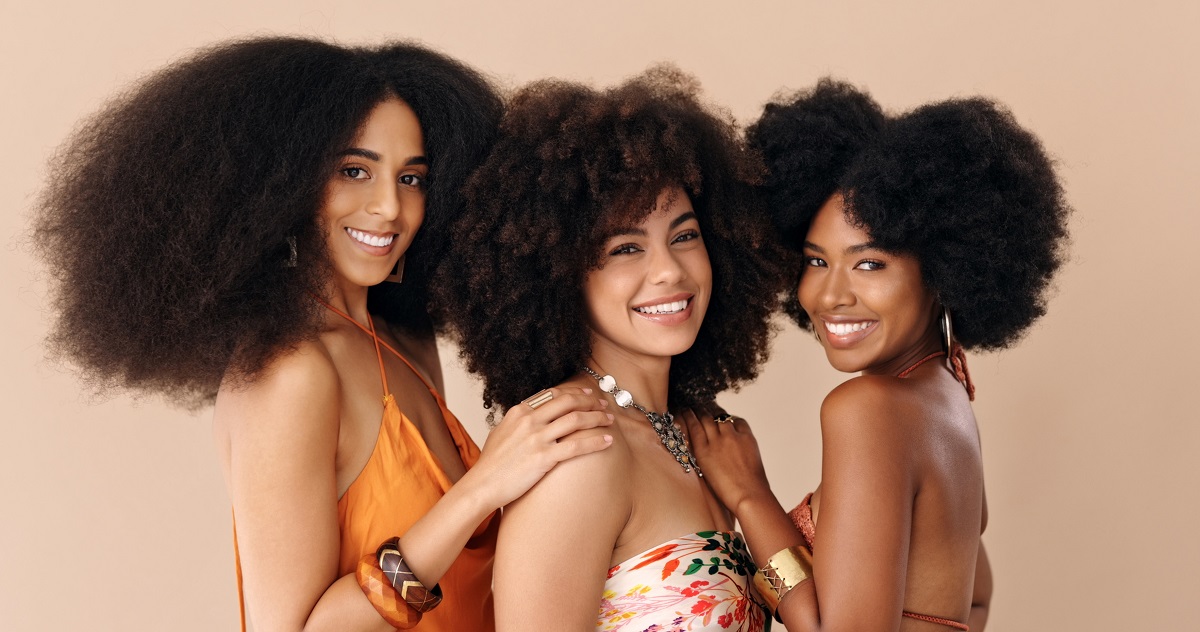
Scalp Care
A healthy scalp is the foundation of healthy hair. Many people use natural remedies to care for their scalps. Coconut oil is often used to massage the scalp, which can help stimulate hair growth. Some people use aloe vera gel to soothe an itchy or irritated scalp.
Heat Styling with Caution
While heat-styling tools like flat irons and blow dryers are used in Nigeria, many people try to limit their use. Heat can damage our hair, making it dry and brittle. When heat styling is necessary, it’s important to use a heat-protectant product. Many Nigerians prefer to air-dry their hair when possible.
Trimming Regularly
Regular trims are important for maintaining healthy hair. Trim your hair every 6-8 weeks. This helps to get rid of split ends and prevents them from travelling up the hair shaft. Some people trim their own hair at home, while others visit a salon.
Eating for Healthy Hair
In Nigeria, we believe that what you eat affects your hair health. Many people include foods rich in protein, vitamins, and minerals in their diet to promote hair growth. Foods like eggs, fish, nuts, and leafy green vegetables are considered good for hair health.
Herbal Remedies
Traditional herbal remedies are still popular in Nigeria for hair care. Some people use a mixture of herbs like neem leaves, hibiscus flowers, or aloe vera to make hair rinses or treatments. These natural remedies are believed to promote hair growth and improve hair health.
Avoiding Tight Hairstyles
While tight braids and weaves are popular in Nigeria, many people are becoming aware of the damage they can cause. Traction alopecia, hair loss caused by tight hairstyles, is a concern. More people are opting for looser styles or taking breaks between tight styles to give their hair and scalp a rest.
Sun Protection
The Nigerian sun can be harsh on our hair. Many people protect their hair from sun damage by wearing hats or head wraps when out in the sun for long periods. Some also use hair products with UV protection.
In conclusion, hair care in Nigeria is a blend of traditional practices and modern techniques. We value our hair and put effort into keeping it healthy and beautiful.
By moisturizing regularly, protecting our hair, and using gentle care methods, we work to maintain the health and beauty of our diverse hair types.
Remember, everyone’s hair is different, so it may take some time to find the perfect routine for your unique hair.
If you enjoyed reading this article on hair care tips, you can visit here for more.
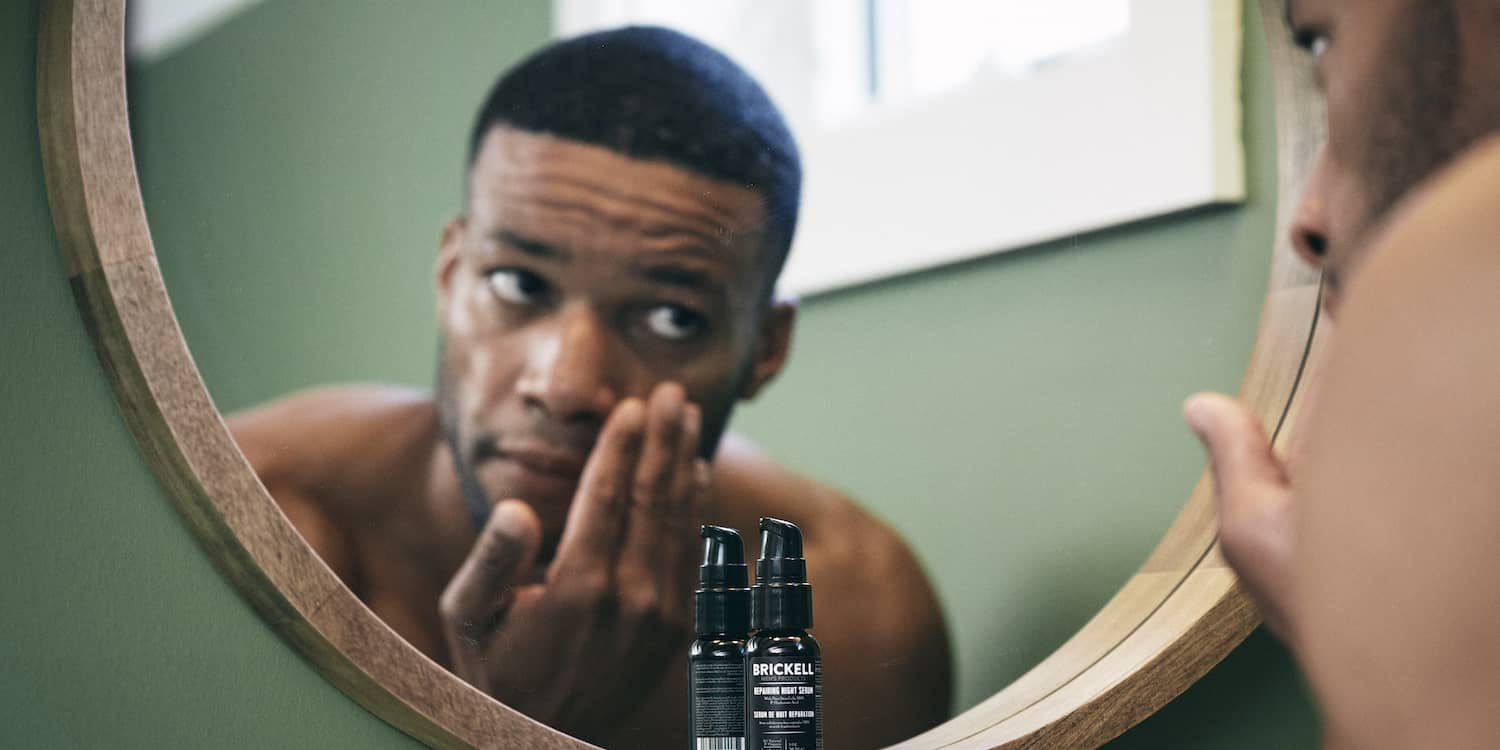
Men and skincare are gradually becoming a thing! Gone are the days when skincare was considered a women’s domain. Men’s skin has unique needs too, and facing challenges like dryness, wrinkles, and even acne.
There are essential products for a healthy glow that men should use. Here, we will explore some of these essential skincare products men should have in their routine, along with the benefits they offer.
1. Sunscreen
Sunscreen isn’t just for vacations at the beach! The sun emits harmful UV rays that damage skin over time, leading to wrinkles, dark spots, and even an increased risk of skin cancer. For men, this can be especially noticeable in areas like the face, neck, and ears that get frequent sun exposure.
Sunscreen helps shield your skin from these damaging rays. Look for a broad-spectrum sunscreen with SPF 30 or higher. Broad-spectrum means it protects against both UVA and UVB rays, the two main types of ultraviolet radiation from the sun.
See a breakdown of what SPF means below:
- SPF 15: Blocks about 93% of UVB rays
- SPF 30: Blocks about 97% of UVB rays
- SPF 50: Blocks about 98% of UVB rays
While SPF 50 offers slightly more protection, SPF 30 is generally sufficient for daily use. Apply sunscreen generously to all exposed skin parts at least 15 minutes before going outside, and reapply every two hours, especially after swimming or sweating.
2. Retinol
As men age, their skin naturally loses collagen, a protein that keeps skin plump and youthful. This can lead to the formation of wrinkles and fine lines. Retinol, a form of Vitamin A, is a powerful ingredient that can help combat these signs of ageing.
Retinol works by stimulating collagen production and increasing skin cell turnover. This results in smoother, firmer skin with a more even tone.
While retinol is highly effective, it can also be irritating to some people. It’s recommended to start with a low concentration and use it only a few times a week at first. Gradually increase frequency as your skin adjusts.
Here are some tips for using retinol:
- Apply it at night, as sunlight can break it down.
- Use a moisturizer after applying retinol, as it can be drying.
- Avoid using other harsh skincare products with retinol, as it can irritate your skin.
Consider a gentler alternative: If retinol is too harsh for your skin, consider using a bakuchiol product. Bakuchiol is a plant-derived ingredient that offers some of the same benefits as retinol but with less irritation.
3. Moisturizer
Just like drinking water is important for your overall health, keeping your skin hydrated is crucial for a healthy glow. Moisturizer traps water in the skin, preventing it from drying out and becoming flaky or itchy. This is especially important for men, as their skin tends to be oilier and can be more prone to dryness with frequent shaving.
Look for a moisturizer that is labelled as “oil-free” or “non-comedogenic” if you have oily or acne-prone skin. These types of moisturizers won’t clog your pores.
4. Cleanser
While soap can remove some surface dirt, it often strips the skin of its natural oils, leaving it feeling dry and tight. A good facial cleanser is specifically formulated to remove dirt, oil, and sweat without disrupting the skin’s natural balance.
There are many types of cleansers available, so choose one that suits your skin type. For example, men with oily skin might benefit from a gel cleanser, while those with dry skin might prefer a creamier cleanser.
Here’s how to cleanse your face properly:
- Wet your face with lukewarm water.
- Apply a dime-sized amount of cleanser to your hands and massage it gently onto your face, avoiding the eye area.
- Rinse thoroughly with lukewarm water and pat your face dry with a clean towel.
5. Hydration
Drinking enough water is essential for overall health, and it also plays a vital role in skin health. Water helps to flush toxins from the body and keeps skin hydrated from the inside out.
Aim to drink eight glasses of water per day for optimal health and a radiant complexion.
Building your skincare routine
While this article highlights some essential products, a skincare routine for men doesn’t have to be complicated. Start with a basic routine of cleansing, moisturizing, and using sunscreen daily.
Once your skin adjusts, you can incorporate additional products like retinol for anti-ageing benefits. Remember, consistency is required here! Sticking to a regular skincare routine will help you achieve a healthy
For more updates, check here.
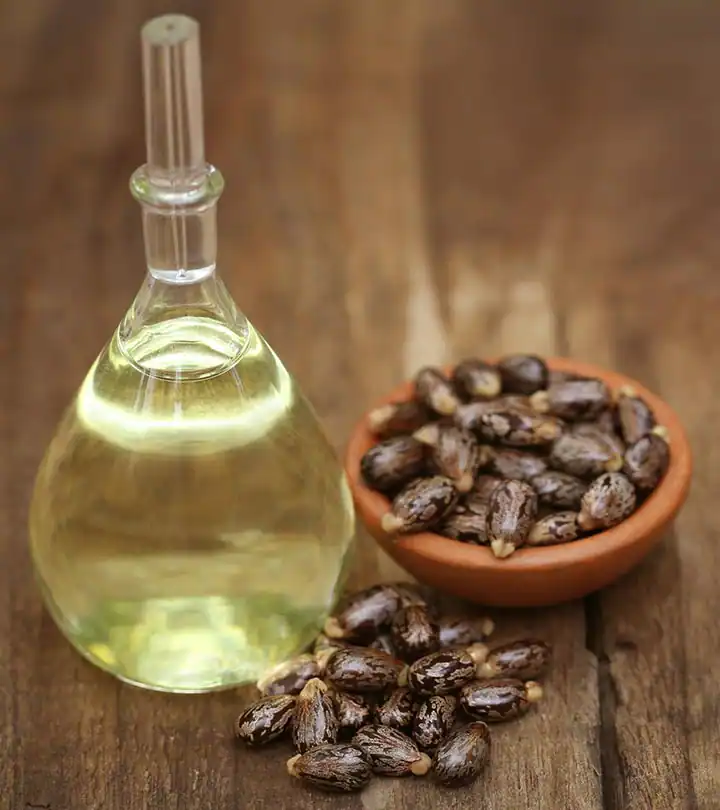
Hair loss and thinning can be a frustrating experience for men and women alike. It can be caused by various factors, including genetics, stress, hormonal changes, and even certain hairstyles. Fortunately, there are natural options like castor oil you can explore alongside consulting a doctor or dermatologist to help strengthen and regrow hair.
Castor oil, derived from the castor bean plant, is a popular natural remedy used for centuries to promote hair health. While scientific research is ongoing, many users swear by its effectiveness.
Let’s delve into the potential benefits of castor oil for hair and explore how to use it in your hair care routine safely and effectively.
What are the potential benefits of castor oil for hair?
Castor oil boasts a unique chemical composition, rich in a fatty acid called ricinoleic acid. This fatty acid is thought to have anti-inflammatory and antimicrobial properties.
Here’s how these properties might contribute to hair health:
1. Improved scalp health
A healthy scalp is essential for healthy hair growth. Castor oil’s anti-inflammatory properties might help soothe a dry, itchy scalp. Additionally, some believe it can help combat dandruff and scalp conditions that impede hair growth.
2. Enhanced scalp circulation
When applied to the scalp, castor oil’s viscosity creates a gentle massaging effect. This massage can help stimulate blood circulation, potentially delivering more nutrients to hair follicles and promoting hair growth.
3. Moisturization and shine
This oil is a humectant that attracts moisture to the hair shaft. This can be especially beneficial for dry, brittle hair, as it helps add moisture and prevent breakage. Additionally, the oil’s lubricating properties can leave hair looking shinier and smoother.
4. Strengthening hair strands
Castor oil is rich in ricinoleic acid, which some studies suggest may help promote keratin production. Keratin is a protein that forms the building blocks of hair, and adequate levels are crucial for strong, healthy hair growth.
It’s important to note that while these potential benefits are promising, more research is needed to definitively confirm the effectiveness of castor oil for hair growth. However, many users report positive experiences with castor oil for strengthening and improving the overall health of their hair.
Is castor oil right for you?
The oil is generally considered safe for topical use on the scalp and hair. However, it’s always a good idea to do a patch test before applying it liberally.
- Apply a small amount of castor oil to the inner side of your elbow.
- Wait 24 hours to see if there’s any redness, itching, or irritation. If you experience any negative reactions, discontinue use.
Castor oil is a thick, viscous oil. While it offers moisturizing benefits, it can also weigh down fine hair if not used properly. If you have fine hair, consider diluting the castor oil with a carrier oil like coconut oil, jojoba oil, or almond oil before applying it.
Incorporating castor oil into your hair care routine
There are several ways to incorporate this oil into your hair care routine. Here are a few methods to explore:
- Hot oil treatment: This is a popular method for deeply conditioning the hair and scalp.
- Warm a small amount of the oil until slightly warm. Be careful not to overheat the oil, as it can burn the scalp.
- Massage the oil gently into your scalp and hair, focusing on the ends.
- Cover your hair with a shower cap or wrap it in a warm towel. Leave the oil on for 30 minutes to an hour.
- Wash your hair thoroughly with a gentle shampoo and conditioner.
-
Scalp massage: Castor oil can be used for a quick scalp massage to stimulate circulation and promote relaxation.
- Apply a few drops to your fingertips.
- Massage the oil gently into your scalp using circular motions for a few minutes.
- Leave the oil on for 30 minutes or longer.
- Wash your hair thoroughly with shampoo and conditioner.
-
Hair mask: Combine castor oil with other hair-nourishing ingredients to create a deeply conditioned hair mask.
Here’s a simple DIY recipe: 1 tablespoon castor oil, 1 tablespoon honey, 1 tablespoon yoghurt, 1 tablespoon olive oil
- Mix all ingredients in a bowl until well combined.
- Apply the mask to your hair, focusing on the mid-lengths and ends.
- Cover your hair with a shower cap or wrap it in plastic wrap. Leave the mask on for 30 minutes to an hour
if you enjoyed this article, consider reading more here.
Latest


New Album: KCee Releases Feat. Odumodublvck, Teni, Diamond Platnumz – ‘Mr. Versatile’
KCee has a new album called “Mr. Versatile“. This name shows that KCee is good at doing many different types...
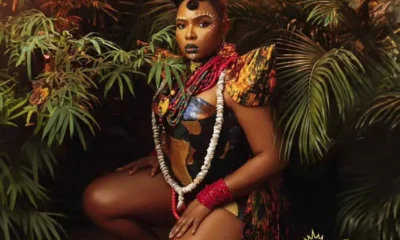

Yemi Alade Releases Her Sixth Album, ‘Rebel Queen’
Yemi Alade has just released a new album called “Rebel Queen“. She is a famous singer from Nigeria, known all...
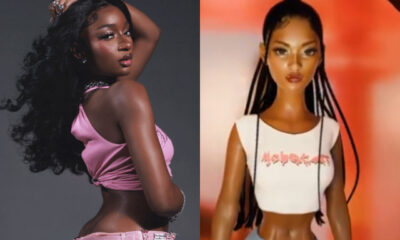

Ayra Starr Launches Doll Collection
Ayra Starr is a famous singer from Nigeria. She has become very popular in the music world. Many people like...


Musician Khaid Returns To Social Media After Protracted Illness; Unfollows All But Olamide
Khaid, a rising Nigerian music star, has recently returned to social media after a period of absence due to a...


Netflix Subscription Prices Increases In Nigeria For The 2nd Time This Year
Netflix has significantly increased its subscription fees for Nigerian users. This marks the second time the popular streaming platform has...


BBNaija 9: You Must Know These 4 Things Before The New Season Of Starts On Sunday
Africa’s most popular reality TV show, Big Brother Naija, is about to launch its ninth season (BBNaija 9) in a...


Burna Boy To Mark The 5th Anniversary Of ‘African Giant’ With YouTube Special
Burna Boy is a prominent African musician who has achieved global superstar status through his award-winning music and record-breaking concerts....


Babatunde Apalowo’s ‘Londoner’ Wins Best Fiction Feature Prize At Durban FilmMart
“Londoner” is an autobiographical film that tells the story of Ayo, a Nigerian bank manager who moves to London to...


Davido Partners With GAC Motors In Multi-Million Deal
David Adeleke, who is famously known as Davido, has entered into a new business agreement with GAC Motors, a well-known...


KCee Teases Release Of New Album, “Mr. Versatile”
KCee is a well-known Nigerian musician who has been making popular music for almost 20 years. He has managed to...
-Ad-




10 Reasons Why Working Out Is Good For You

New Music: BoyPee, Hyce & Brown Joel Feat. Davido – Ogechi

10 Lace Gown Styles To Steal The Show At A Wedding

Why Women Break Up With Men They Are Still In Love With

Shakira To Perform At 2024 Copa América Final On Sunday

My Wedding Dress Is The Most Comfortable Dress I’ve Ever Worn – Sharon Ooja Appreciates Designer Veekee James

Why ‘Isiagu’ Styles Are Becoming Norm At Igbo Ceremonies

Why Do Women Live Longer Than Men? See Reasons Behind The Longevity Gap

6 Ways To Stay Informed Without Sacrificing Your Mental Health

5 Things You Should Always Keep Private
Trending
-

 ARTS & CULTURE6 days ago
ARTS & CULTURE6 days ago5 Powerful Goddesses Who Answer Prayers In Nigerian Traditional Religions
-
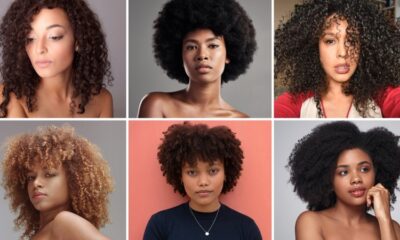
 BEAUTY5 days ago
BEAUTY5 days agoHair Care Tips For All Nigerian Hair Types
-

 FAB FRESH4 days ago
FAB FRESH4 days agoRising Artist Litovibes Features Patoranking In New Single, ‘My Way’
-
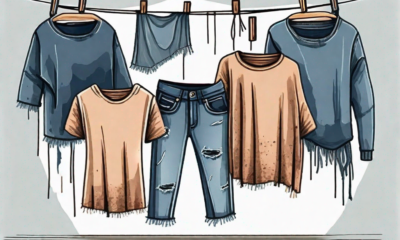
 FASHION7 days ago
FASHION7 days agoWhat Qualifies As Distressed Fashion?
-

 SPORTS3 days ago
SPORTS3 days agoNigeria Vs Brazil: Time And Where To Watch The Super Falcons’ 1st 2024 Olympics Game
-

 FASHION6 days ago
FASHION6 days agoSuit Up & Stand Out: How To Wear A Head-Turning Suit In 2024
-

 HEALTHY LIVING5 days ago
HEALTHY LIVING5 days agoWhy Fibroids Come Back After Surgery
-

 OPINION6 days ago
OPINION6 days agoHow To Build Trust For A Stronger Relationship




